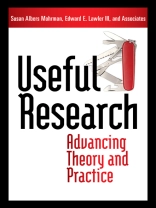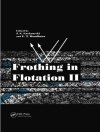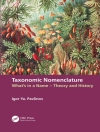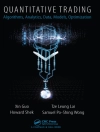Features a who’s who of leading management scholars Takes a stand on a major controversy in academia: should organizational research aspire to be relevant to practitioners? A sequel to the seminal book, Doing Research That is Useful for Theory and Practice, also edited by Ed Lawler, Susan Mohrman, and Associates For decades there has been an ongoing, at times heated, debate over how relevant to real-world organizational concerns academic organizational research should be. The contributors to this book argue that in order to keep organizational research relevant to both theory and practice, research must deviate from the orthodoxy of traditional positivistic research. The true test of whether knowledge is useful to practice is not whether it is “theoretically” impactful but whether it is theoretically impactful and results in improved organizational effectiveness. The contributing authors were selected for their demonstrated ability to conduct useful research and their distinguished academic careers. Part I of the book features active scholars who describe the choices they make and the tactics they employ to ensure that their work advances both theory and practice. In part II, four highly respected researchers reflect on how they approached their careers so that they could have a broad impact on practice and still maintain academic rigor. Part III describes pathways to bring academic knowledge to practice—working with consultancies, executive Ph D programs, OD specialists, and professional associations, as well as framing academic concepts in ways that are attention-grabbing, memorable, and credible to practitioners. Part IV looks at institutional constraints and enablers: the prospects for useful research in traditional academic settings like business schools, peer-reviewed journals, and the Academy of Management. Finally, part V sums up the themes of the book and the challenges and opportunities facing researchers who aspire to do research that advances both theory and practice. Contributors: Jean Bartunek, Michael Beer, George Benson, John Boudreau, Wayne Cascio, Thomas Cummings, Amy Edmondson, Lynda Gratton, J. Richard Hackman, Gary Latham, Phillip Mirvis, Allan M. Mohrman, David Nadler, James O’Toole, C. K. Prahalad, Denise Rousseau, Sara Rynes, Edgar Schein, Ramakrishnan V. Tenkasi, Michael Tushman, Andrew Van de Ven, Ruth Wageman, Ian Ziskin
Spis treści
Section I: Introduction and Framing 1)Introduction: The Value Stream of Organization and Management Science: Edward Lawler & Sue Mohrman (CEO, USC) Section II: Exemplars 2)Rob Cross, University of Virginia 3)Amy Edmundson, Harvard University 4)CEO exemplars—Sue and Monty Mohrman (CEO) Commentary: Richard Hackman, Harvard University Section III: Bodies of Work that have Influenced Practice 5) Ed Lawler, CEO and Phil Mirvis, Boston College 6) C.K. Prahalad, University of Michigan 7) Mike Beer, Harvard University, emeritus & True Point Commentary: Thoughts on an Academic Career with Impact – Jim O’Toole, University of Denver Section IV: Pathways: Research to Practice 8) Books with Impact – George Benson, University of Texas, Arlington 9) Collaborations with Consulting Firms/The Role of Consulting Firms – Ruth Wageman 10) Evidence Based Management/Sticky Concepts—Denise Rousseau, Carnegie Mellon 11) Classroom—impact of education—conditions for application, etc. –Paula Jarzabkowski 12) Professional Associations—Workshops and Tools — Wayne Cascio 13) Organization Development—Chris Worley and Tom Cummings Practitioner Perspective: Pathways with Impact—Roundtable of Practitioners Commentary: Gary Latham Section V: Barriers and Enablers 14) Business Schools/MBA programs – Chris Worley, CEO, and Tom Cummings, USC 15) Journals—Theresa Welbourne, CEO Roundtable Discussion of Deans, Department Heads and Journal Editors in Attendance Commentary: Sarah Rynes Section VI: Putting it All Together – Section Framing by Lawler and Mohrman 16) Reflective Chapter – Andy Van De Ven, University of Minnesota 17) Mohrman and Lawler –Learnings from the Conference and Book: What Academic Research Would Look Like if We Took Seriously a Mandate to do Research that Impacts Theory and Practice.












